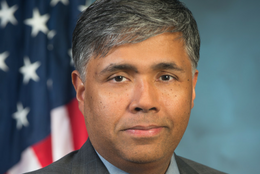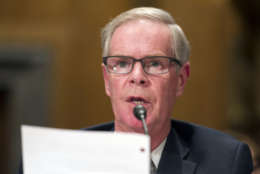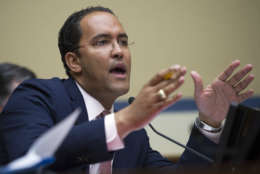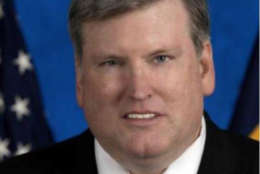IT Modernization
-
Johnson Joy, the chief information officer at the Department of Housing and Urban Development, said he wants to move the agency to the cloud, update its code, and replace desktops with laptops, among other things.
November 21, 2017 -
The Office of Personnel Management authorized a special Schedule A hiring authority to help agencies bring on specific professionals for their IT modernization and "smarter IT delivery initiative" projects. The authority expires Sept. 30, 2018.
November 20, 2017 -
David Bray, who left the FCC in October and now is the executive director of the People-Centered Internet Coalition, moved the agency to the cloud to cut spending on legacy IT systems by 35 percent.
November 17, 2017 -
Virtually all federal agencies are undergoing transformative shifts to meet the demands of a changing digital landscape. Depending on the agency, legacy processes, systems, or applications may be modernized either individually or collectively. While many organizations are eager to innovate and modernize, they may not have taken the steps to strategically prioritize their efforts.
November 07, 2017 -
Jeff Fossum, senior vice president at Booz Allen Hamilton, said agencies need to take a holistic view of their digital transformation effort, or face new systems or processes that miss the mark.
November 03, 2017 -
Laura Grant and David Vernon, both of SAP, say agencies need to adopt innovation platforms, not just new technology.
November 02, 2017 -
The MGT Act will give federal chief information officers a central fund of $3 billion from which they can draw to update obsolete IT systems.
November 01, 2017 -
The General Services Administration said it recognizes agency's concerns with the new Enterprise Infrastructure Solutions contract and has a team to help agencies release their solicitations.
October 27, 2017 -
A bill expected out of Congress would help pay for chief information officers to figure out strategies to modernize their systems.
October 25, 2017 -
Without a doubt, IT modernization and digital transformation are hot topics in the federal community.
October 19, 2017 -
When it comes to protecting the government's IT infrastructure from cyberattacks, conventional wisdom has long held that modernization of outdated legacy systems can be a key driver of improved security. The results of a survey released Sept. 6 challenged that conventional wisdom. The poll, conducted by Unisys found that a majority of federal IT leaders believe modernization efforts have increased, not decreased, their overall security challenges
October 16, 2017 -
Syed Azeem, a career federal IT leader, makes the case for why microservices will make federal systems more secure and easier to enhance.
October 16, 2017 -
Oracle called the government’s efforts to modernize technology "out of sync" and filled with "false narratives."
October 09, 2017 -
Rep. Will Hurd (R-Texas) said the MGT Act protects against funds realized from IT modernization being taken for other uses in the agency.
October 02, 2017 -
Brian Burns, the Coast Guard’s acting chief information officer, said the service is on schedule to move to Windows 10 by March 2018.
September 29, 2017















